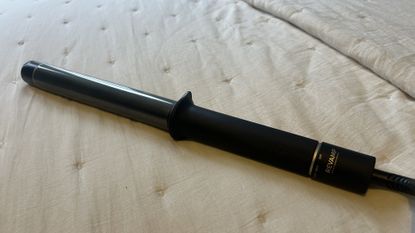Wellness
The latest Wellness breaking news, comment, reviews and features from the experts at T3
Explore Wellness
-

Can regular yoga improve your sleep quality? I talked to a sleep expert to find out
Yoga has been shown to improve sleep quality but what is it about the practice that means we get a better night’s rest?
By Kat Bayly Published
-

I’m a yoga teacher and I swear by these 3 hacks for a productive day
Add these three things into your morning routine to start your day from a calm place
By Kat Bayly Published
-
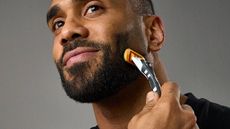
BIC’s new 2-in-1 shaver is precise, affordable and so much more than a disposable shave
BIC debuts first-ever 2-in-1 trimmer and shaver
By Bethan Morgan Published
-

Dyson's first-ever scalp serum has arrived – here's why it's my favourite formulation so far
Dyson Amino is a leave-in bubble treatment focused on scalp health
By Lizzie Wilmot Published
-

9 best men’s fragrance launches from January 2026 – spicy, soft scents you should know about
From Valentino to Givenchy, here’s 10 fragrances from January 2026 to look out for
By Bethan Morgan Published
-

Best memory foam mattress 2026: cosy foam support for a great night's sleep
Find the best memory foam mattress that moulds to your body for better sleep
By Bethan Morgan Last updated
-

Can’t stop snoring? These 3 everyday habits could be making it worse, says sleep expert
Improve your sleep and stop your snoring with these quick tips
By Bethan Morgan Published
-
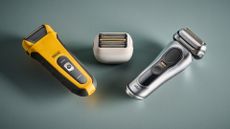
Best electric shaver 2026: top grooming options from Braun, Philips and more
Reduce stubble to rubble with the best electric shavers from Braun, Philips and other brands
By Lizzie Wilmot Last updated
-

Best women's perfumes and fragrances 2026: hit the right notes
Find the best women's perfumes, from sweet and decadent to exotic and green
By Bethan Morgan Last updated
-

Best cooling mattress 2026: drop your temperature for a better night's sleep
Banish night sweats with the best cooling mattresses and mattress cooling pads, designed to counteract heat retention
By Bethan Morgan Last updated
-
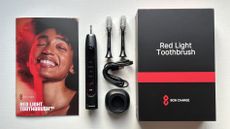
Bon Charge Red Light Toothbrush review: best oral care innovation in years or money-grabbing gimmick?
Does exposing your gums to red light therapy while you brush really reduce inflammation?
By Joanna Ebsworth Published
-
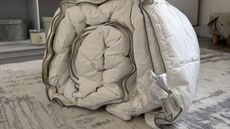
Scooms Body Temperature Regulating Luxury Duvet review: a top winter sleep upgrade
Warm cosy comfort that also keeps you cool? Meet the Scooms Body Temperature Regulating Luxury Duvet
By Lucy Miller Published
-
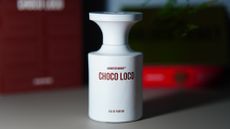
I tested Born to Stand Out Choco Loco – and I've never wanted to eat myself more
Ever wanted to smell like the most decadent hot chocolate? Now you can
By Sam Cross Published
-

5 simple ways to boost your health this January and stay motivated
It's no surprise that a lot of people are starting to feel their New Year motivation slip
By Lizzie Wilmot Published
-

What mattresses do Olympians sleep on? These Dreams mattresses are Team GB-approved and great for recovery
Dreams continues its Team GB and ParalympicsGB partnership with new mattress range
By Bethan Morgan Published
-
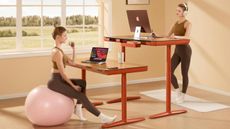
Back to work yoga – 5 yoga poses that relieve tension from a day of sitting
Get your body moving with these yoga postures designed to release the hamstrings, hips, shoulders and lower back
By Kat Bayly Published
-

This every day shower essential is dirtier than your toilet – here’s how to keep it clean
You’ll be surprised by how dirty this bathroom essential really is…
By Bethan Morgan Published
-
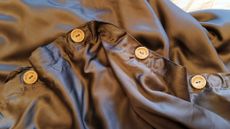
This bamboo bedding transformed my sleep – now I don't want to go back to cotton
From scepticism to silky nights: my two month test of Pretty You London's bamboo bedding delivered cooler sleep, fresher sheets and feeling of luxury
By Tom May Published
-

Acqua di Parma kicks off its 110th birthday with an exclusive scent and Michael Fassbender
The brand is reminding us about the Art of Living Italian
By Sam Cross Published
-
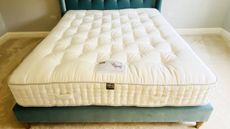
Button & Sprung Teesdale Pocket Sprung Mattress review: exceptionally comfortable, this mattress has me surrendering deeply into sleep
With its impressive 15-layer structure, this medium-firm pocket sprung mattress is filled with natural, breathable materials and comes with a 100-night trial
By Emily Peck Published
-

Best sleep tracker 2026: top wearables to improve your sleep quality
Discover the best sleep trackers to better your sleep, from budget wearables to smart under-mattress technology
By Bethan Morgan Last updated
-

I'm a wellness expert – here's 5 things I do to tackle Blue Monday
Beat Blue Monday with these 5 wellness tips
By Bethan Morgan Published
-

These 3 everyday habits are ruining your sleep, according to a sleep expert
Prioritising sleep in 2026? Then stop doing these three things…
By Bethan Morgan Published
-
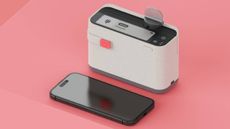
This mini lab gadget detects major food allergies in your meals in minutes
Allergen Alert is a game changer for detecting food allergies
By Bethan Morgan Published
-

I tried Japanese forest bathing – here's 3 ways it improved my wellbeing
Used as a preventative measure against stress in Japan, I gave forest bathing a go to gain first-hand experience of its wellbeing benefits
By Kat Bayly Published
-

I test mattresses for a living – these 3 smart mattresses improve your sleep and are actually worth the cash
Want the best night’s sleep in 2026? Then you might want to upgrade to a smart mattress
By Bethan Morgan Published
-
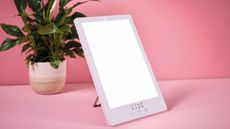
Aldi takes on Lumie with its very own SAD wellness lamp dupe – and it’s a third of the price
This Aldi Wellness Lamp can help with SAD symptoms – but is it effective?
By Bethan Morgan Published
-

What is REM sleep and why is it important?
Everything you need to know about REM sleep, including what it is and how much you need
By Bethan Morgan Published
-
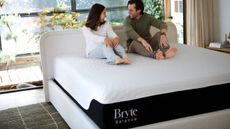
This smart mattress can rock you to sleep and stop your partner snoring
Bryte’s smart mattress might have convinced me about sleep technology
By Bethan Morgan Published
